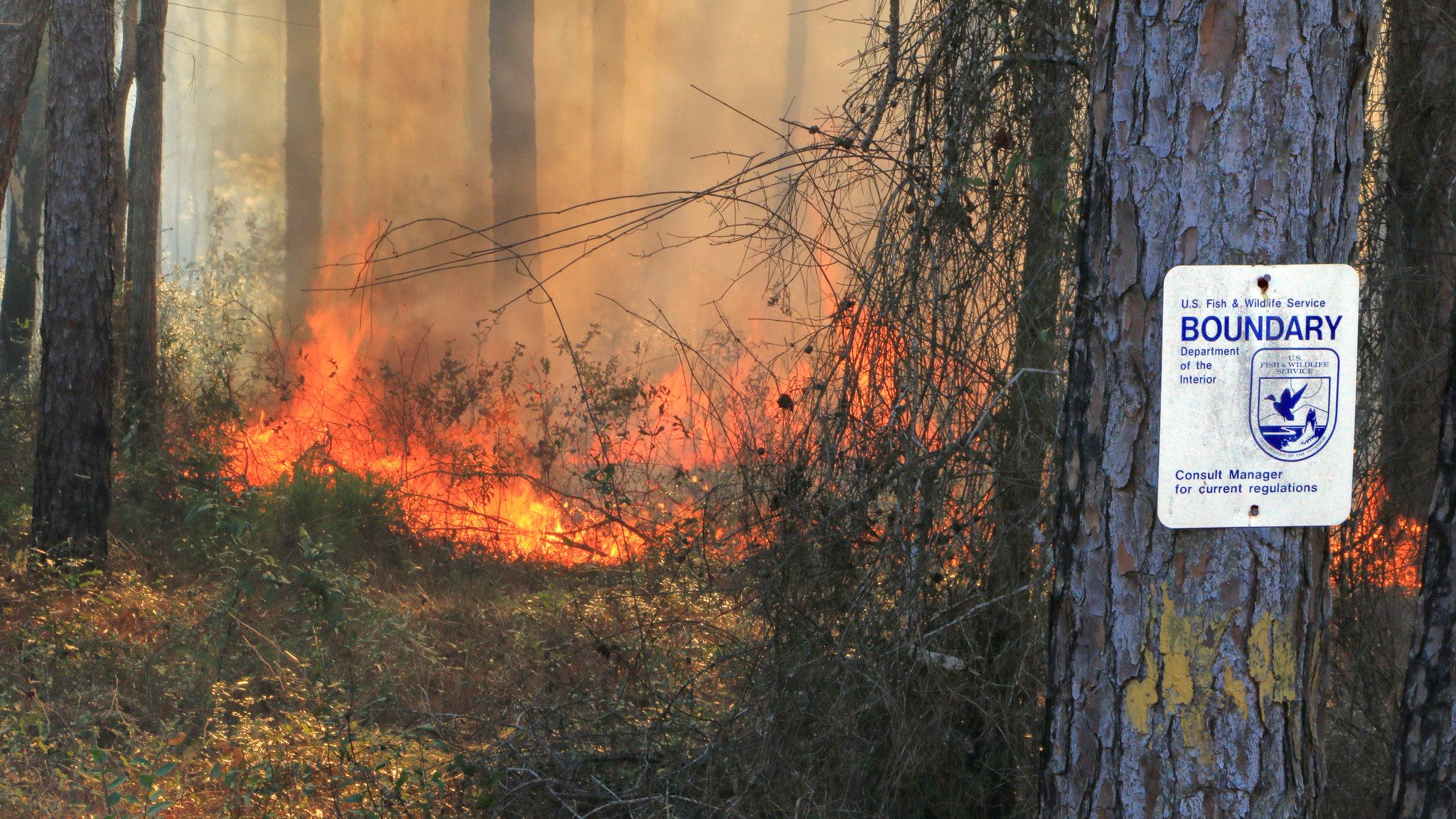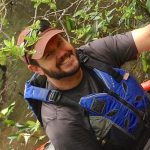July 16: Spring/Summer Science Series Presentation on Prescribed Fire Management

Join us on July 16th at 10am ET for the final presentation in our SE CASC & South Atlantic Spring/ Summer Science Series. The Southeast Climate Adaptation Science Center and the South Atlantic Conservation Blueprint Team have collaborated to present this four-part series showcasing SE CASC funded science projects that are relevant to conservation in the Southeast and South Atlantic region. The next presentation, Perspectives on Prescribed Fire Management in Longleaf Pine Ecosystems: The Context of Landscape Transformation and Anthropogenic Climate Change will be presented by Dr. John Kupfer (University of South Carolina). Learn more about past presentations in the series here.

Image Credit: Alan Cressler
Perspectives on Prescribed Fire Management in Longleaf Pine Ecosystems: The Context of Landscape Transformation and Anthropogenic Climate Change
Dr. John Kupfer, University of South Carolina
July 16, 2020 | 10AM ET
Register here.
Longleaf pine ecosystems are iconic systems of the southeastern United States that historically contained a spectacular diversity of plants and animals. These habitats have, unfortunately, been degraded and reduced to a small fraction of their former extent through a century of landscape conversion, logging, and fire suppression. In response, many agencies, NGOs, private landowners and businesses have committed to longleaf pine restoration, with prescribed fire serving as one of the primary tools in such efforts. However, the use of prescribed fire to maintain or restore biodiversity and historic ecological conditions in longleaf pine ecosystems while also reducing wildfire risk may be increasingly difficult as the longleaf landscape is becoming more developed and projected climate changes are expected to restrict prescribed burning opportunities. Here, we present the initial results of a survey designed to provide baseline information on the criteria used for prioritizing potential burn sites, current burning practices and limitations, and expectations for future changes in burning constraints. Based on responses from more than 300 fire managers across the Southeast, our results clarify overall patterns and subregional trends in the seasonal and diurnal timing, goals, and associated risk calculations associated with their longleaf pine burn programs and point toward a number of challenges that regional fire managers expect to face over the next 50 years.
This presentation has been approved for Continuing Forestry Education (CFE) credit from the Society of American Foresters. Please email Ashlyn Shore at arshore@ncsu.edu if you intend to receive CFE credit for this event.
Learn more about the speaker:
 Dr. John Kupfer is currently Professor in the Department of Geography and Affiliated Faculty in the School of Earth, Ocean and Environmental Science at the University of South Carolina. As a landscape ecologist and biogeographer, his research couples field work with spatial analysis and GIS-based modeling to explore the interactive effects of landscape transformation, climate change, and disturbances such as flooding, fire, and hurricanes on plant and animal communities. Much of that work is conducted to support more effective management of public lands, and he is an active part of the Congaree Biosphere Region’s Advisory Council. He currently serves as USC’s Consortium PI for the Southeast Climate Adaptation Science Center.
Dr. John Kupfer is currently Professor in the Department of Geography and Affiliated Faculty in the School of Earth, Ocean and Environmental Science at the University of South Carolina. As a landscape ecologist and biogeographer, his research couples field work with spatial analysis and GIS-based modeling to explore the interactive effects of landscape transformation, climate change, and disturbances such as flooding, fire, and hurricanes on plant and animal communities. Much of that work is conducted to support more effective management of public lands, and he is an active part of the Congaree Biosphere Region’s Advisory Council. He currently serves as USC’s Consortium PI for the Southeast Climate Adaptation Science Center.
- Categories:
